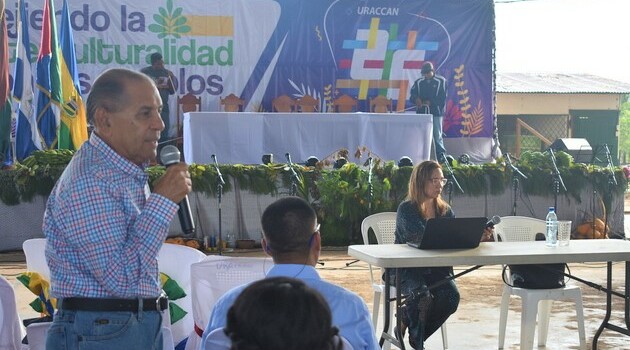Quality models for the improvement of university management

On May 2, the inaugural session of the “Training Program for the Construction of Institutional Improvement Plans” was held, an initiative whose main objective is to train 80 teachers from the Universidad Nacional de Educación Enrique Guzmán y Valle (UNE) in the construction and development of effective improvement plans for their educational institutions. Through a combination of theory and practice, participants will acquire the necessary skills to identify areas for improvement, establish clear objectives, design effective strategies and evaluate the progress of their improvement plans.
The program is structured in six modules covering key topics that emphasize the importance of collaboration, effective leadership and transparent communication for the success of continuous improvement processes.
- First module: examines the fundamental elements to form high performance work teams and their importance to generate negotiation processes and strategies within the framework of the institutional evaluation, self-evaluation and accreditation processes.
- Second module: Reviews self-evaluation, external evaluation and accreditation processes, exploring the tools and methodologies necessary to carry out an integral evaluation of our institution and obtain the corresponding accreditation.
- Third module: studies how to carry out the diagnosis for institutional evaluation and the formulation of improvement plans, learning how to identify areas of opportunity and design effective strategies to address them.
- Fourth module: analyzes the necessary background for the formulation of an improvement plan, understanding the importance of research and previous analysis.
- Fifth module: addresses the formulation, monitoring and evaluation processes of improvement plans, developing practical skills to lead this process effectively.
- Sixth module: addresses the budget as the articulating axis of the improvement plan, understanding how to efficiently manage the available resources to achieve the institutional objectives.
In order to promote the development of specific competencies in each module, weekly synchronous sessions will be held to meet with the thematic content experts, and with the pedagogical advisors to address and resolve doubts that may arise during the activities. The accompaniment will be provided throughout 16 weeks of training with a dedication of 120 hours.
Upon completion of this program, participants will be prepared to lead institutional improvement processes in their organizations, improve educational quality and contribute to the success and strengthening for the accreditation of their institutions.
This Training Program in the Construction of Institutional Improvement Plans is a unique opportunity to develop the skills and knowledge necessary to promote change and improvement in university management. At UNESCO-IESALC we are convinced that improvement plans are a viable way to establish specific actions that bring universities closer to the fulfillment of their academic mission to promote an improvement in the quality of education in the region.
RELATED ITEMS








